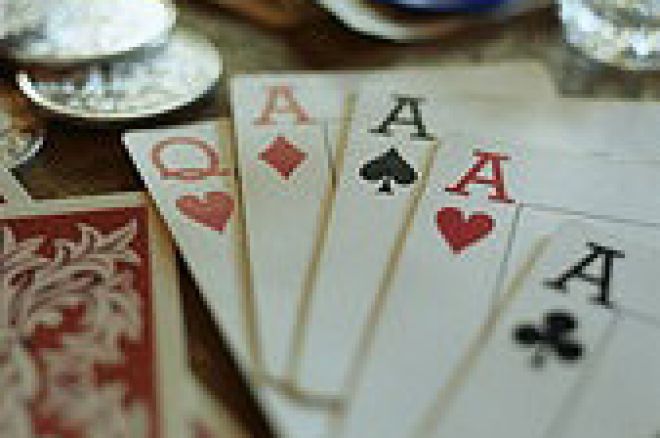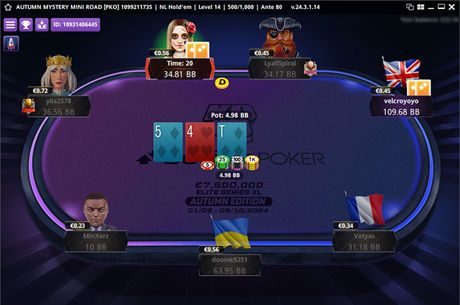Ghosts In The Machine?

The Internet has contributed to the golden age of poker in many attributes. With the seemingly endless list of online sites, satellites to major tournaments and the "big money" that can be made in the online game, millions have flocked to the game that we know and love. Along with the escalation of the game the increase of cheating allegations has come up as well.
While cheating, be it collusion, marking cards or rigging games has long been a part of the live game, the recent history of poker has shown it to be changing. With the influx of new players, the money involved and the attention of the media to mainstream games, the element of distrust has, if not been removed, has been reduced tremendously. With this in mind, why would the same not be true of the online world?
We have all had it happen to us. We stay in on those pocket pairs, draw out what we KNOW to be the nuts with the full house we have made, only to see our opponent turn up a bottom pocket pair which matches our low two. It is a part of the game and, although it rarely happens, it does.
With more than 100,000 (and possibly more) people around the world playing the online game in any given day, the possibilities of cheating have been bantered about. While you may read the bad beat stories and the accusations of site rigging, you have to keep a great deal in mind.
The recent sale of Paradise Poker for nearly $300 million pretty much eliminates the sites from consideration. With the money that is in the online poker world, not only from that sale but from the general action of the participants, it would be financial suicide for the owners of these sites to arrange games. It is in their best interests to keep a legitimate game going, otherwise people will find other sites that they have more trust in. The online sites go to great lengths to verify the authenticity of their games, using such noted firms as PriceWaterhouseCoopers and others. Furthermore, it is also in their best interest to ensure that the players are acting on the level, which leads them to monitor all action on the site and act appropriately if they see something out of line.
Individual players have more of a chance at trying to cheat other players or the sites. Through collusion with other players via instant messaging, software programs or other bots, it is possible that it may happen. Once again, however, like the B&M casinos, the eyes are always watching and the online sites can pick out when certain events are going down, such as someone staying on site for longer than normal periods of time or odd betting patterns in a game.
The most probable cheat method is the disconnect. A player lays down a huge bet on a hand they more than likely would not win, then disconnects from the game or the site. They are looking for their opponent to lay their hand down and taking the pot without having to defend their action. This is about the only likelihood that would make sense; if someone does it, it would be hard to prove that they simply didn't have a computer glitch which resulted in losing the connection.
While their has been isolated incidents of people cracking the random generators of some sites, the reliability and trustworthiness of online poker sites cannot be called into question. And, while some will try, the players who do relegate to less than honest means to gain an edge will eventually be caught and run off the game. Remember these things the next time that you are outdrawn online. It happens in the physical world to the masters of the game; why can't it happen to you online?








